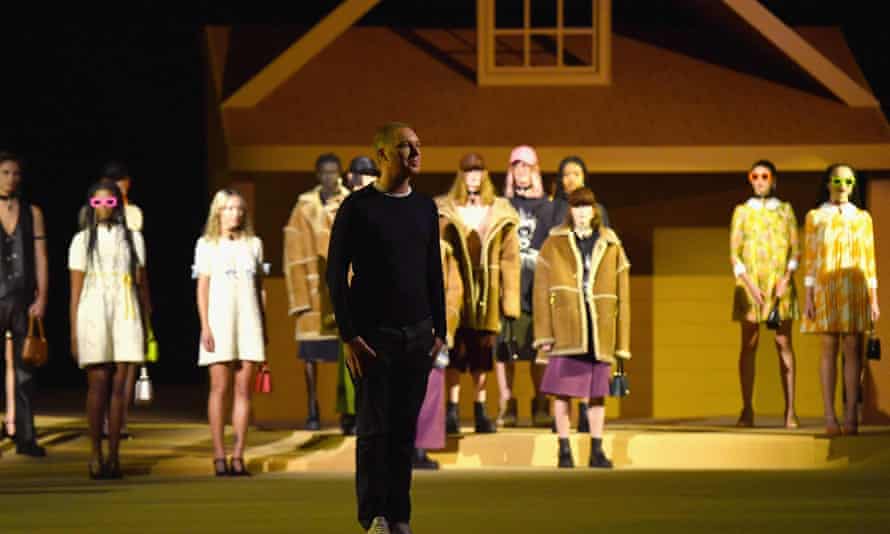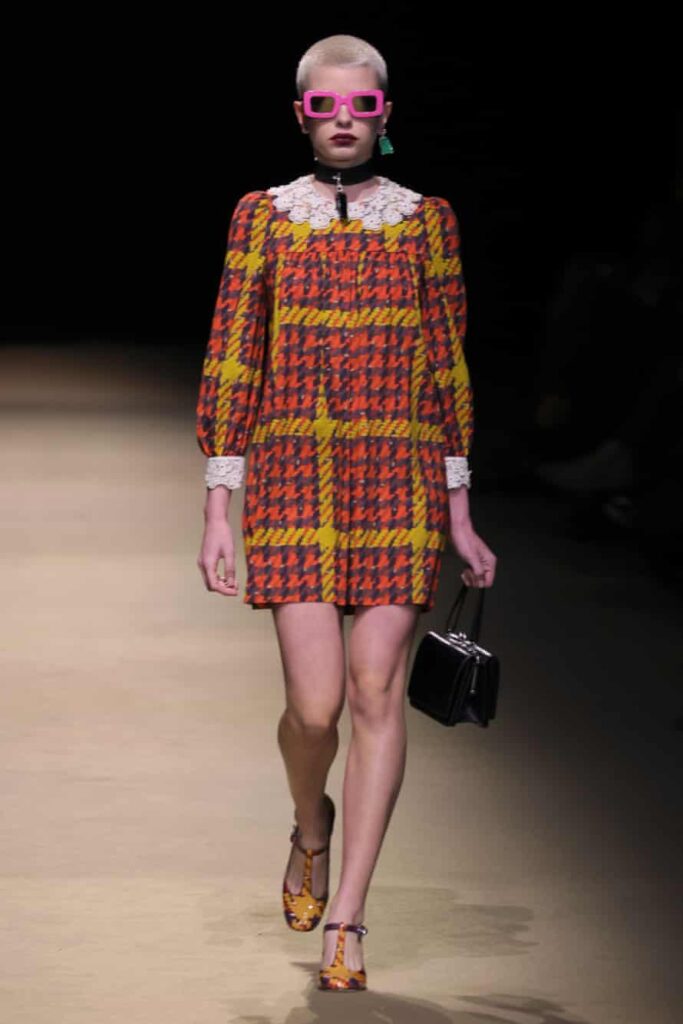Shared from Lifestyle | The Guardian
It might be fashion week in New York at the moment, but Monday was also Valentine’s Day. For the Coach show in the afternoon, each guest – including rapper Megan Thee Stallion, singer Rina Sawayama and model Hari Nef – was greeted with a red rose on their seat and given a heart-shaped cookie.
This old-fashioned, unapologetically schmaltzy gesture suited a show that was flush with retro Americana references. The set included several A-frame houses, trees and a station wagon. The preamble featured a model taking her shopping into one of the houses in a brown paper bag, an ET-worthy group of young people on bikes, and another model walking a glossy Afghan hound. This heightened ordinariness gave a halcyon small-town feel. It was about imagining a place where, as the show notes said, “it’s always the golden hour and things are happening – on the street, inside our homes, and in our hearts.”
British designer Stuart Vevers has been the creative director of Coach since 2013 and has shaped an aesthetic that draws on American scenes, subcultures and icons to bring a sense of cool to an established heritage brand. This idea continued in the autumn/winter 2022 collection. Babydoll dresses had a 60s vintage feel that nodded to Edie Sedgwick and L7. Sheepskin jackets over bikini tops, worn with baseball caps, had a surfy feel. Male models in leather waistcoats and trousers were very Jim Morrison. There were 80s downtown graffiti graphics, in collaboration with graffiti artist duo Mint & Serf. And oversized T-shirts and chunky coloured sunglasses – as well as male models in skirts – brought grunge back once again. The Carpenters’ Superstar was on the soundtrack.
If these references are from the past, they appeal to present youth culture – one obsessed with past aesthetics and retro dressing. This is consistent with Coach’s strategy under Vevers to make their brand relevant to millennials and Gen Z. Celebrities with influence are now attached – Jennifer Lopez, Michael B Jordan and Megan Thee Stallion have appeared in their campaigns recently. In addition to this, the brand has ventured into NFTs. Late last year, they launched a collection of 80 pieces of collective art, which sold out in 11 seconds.

This play for a younger demographic is helped by the fact that – relatively speaking – Coach is reasonably priced, and therefore more attainable. A bag from the brand is priced about £400, compared with nearly four times that for a bag by Valentino or Gucci.
Coach’s investment in younger consumers is paying off. Part of the Tapestry group that also owns Kate Spade New York and Stuart Weitzman, the group says working more with digital saw them acquire about 3 million new customers in North America since December, and the overall digital business across the group grew by 30% in the most recent quarter.
Coach is Tapestry’s most successful brand – and this success aligns with Vevers’ time as creative director. It recorded its highest quarter of revenue in 10 years in the final quarter of 2021. Sales rose by 24% to approximately $1.5bn (£1.1bn), up from $1.2bn (£0.88bn) a year ago.
Images and Article from Lifestyle | The Guardian

